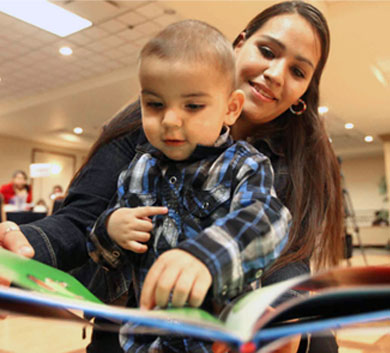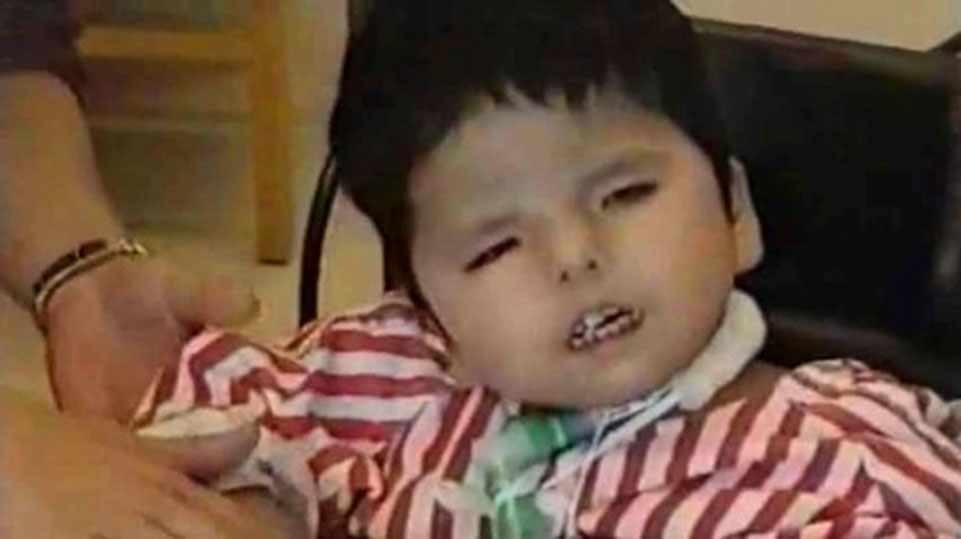
Wabaseemoong Independent Nations Jordan’s Principle
A Child First Initiative
Jordan’s Principle is a child-first principle that aims to eliminate service inequities and delays for First Nations children. Jordan’s Principle states that any public service ordinarily available to all other children must be made available to First Nations children without delay or denial.
Jordan’s Principle is named in honour of Jordan River Anderson, a young First Nations boy from Norway House Cree Nation in northern Manitoba, who spent his entire life in hospital while caught in a jurisdictional dispute between the governments of Canada and Manitoba, which both refused to pay for the in-home medical care necessary for Jordan to live in his home and community.
Jordan’s Principle is a legal requirement resulting from the Orders of the Canadian Human Rights Tribunal (CHRT) and is not a policy or program.

Does Your Child Require Special Care or Services?
Whether it’s healthcare, social care, education or physical or mental challenges with a child, your child may be eligible for funding and services from the Wabaseemoong Jordan’s Principle. If your child is a status member of Wabaseemoong Independent Nations, call us and we can help.
Our Nations ~
Putting Children First
Jordan’s Principle ensures that First Nations children can access public services on the same terms as other children without experiencing any service denials, delays or disruptions related to their First Nations status. The government of first contact pays for the service and resolves jurisdictional/payment disputes later.

What Services Can We Help Your Child With?
If you have a child that needs additional supports, funding may be available to you. Some examples of what has been funded under Jordan’s Principle include:
HEALTH CARE:
- mobility aids
- wheelchair ramps
- addiction services
- services from Elders
- mental health services
- specialized hearing aids
- traditional healing services
- services for children in care
- assessments and screenings
- transportation to appointments
- medical supplies and equipment
- long-term care for children with specialized needs
- therapeutic services for individuals or groups (speech therapy, physiotherapy, occupational therapy)
SOCIAL CARE:
- social worker
- land-based activities
- personal support worker
- specialized summer camps
- respite care (individual or group)
- specialized programs based on cultural
- beliefs and practices
EDUCATION
- school supplies
- tutoring services
- teaching assistants
- specialized school transportation
- psycho-educational assessments
- assistive technologies and electronics
Jordan River Anderson

Every child deserves access to services like health care and supports at school. However, First Nations children have not always had the same access to services as other Canadian children.
This is because different levels of government fund different services for First Nations children, especially those living on – First Nations.
This has led to disputes between governments about who should pay for which services.
Jordan River Anderson from Norway House Cree Nation in Manitoba got caught in one of these payment disputes. As a result, he didn’t get the recommended home-based care he needed.
The Boy Behind Jordan’s Principle
Jordan was born in 1999 with multiple disabilities and stayed in the hospital from birth. When he was 2 years old, doctors said he could move to a special home for his medical needs. However, the federal and provincial governments could not agree on who should pay for his home-based care. Jordan stayed in the hospital until he passed away at the age of 5.
In 2007, the House of Commons passed Jordan’s Principle in memory of Jordan. It was a commitment that First Nations children would get the products, services and supports they need, when they need them. Payments would be worked out later.
Today, Jordan’s Principle is a legal obligation, which means it has no end date.
While programs and initiatives to support it may only exist for short periods of time, Jordan’s Principle will always be there and will support First Nations children for generations to come.
Wabaseemoong Jordan’s Principle
Service Flow for Children
STEP 1:

STEP 2:

STEP 3:

STEP 4:

STEP 5:

STEP 6:

STEP 7:
Substantive Equality
The following information is to help build understanding, and provide practical guidance, to assist in the operationalization of substantive equality across the country in the context of ensuring Canada’s full implementation of Jordan’s Principle. This information remains evergreen and will be periodically updated to ensure that it remains relevant and is aligned with Government of Canada priorities.
What is substantive equality?
Substantive equality is a legal principle that refers to the achievement of true equality in outcomes. It is achieved through equal access, equal opportunity, and, most importantly, the provision of services and benefits in a manner and according to standards that meet any unique needs and circumstances, such as cultural, social, economic and historical disadvantage.
Substantive equality is both a process and an end goal relating to outcomes that seeks to acknowledge and overcome the barriers that have led to the inequality in the first place.
When substantive equality in outcomes does not exist, inequality remains.
What is Canada’s obligation under Jordan’s Principle with respect to substantive equality?
Pursuant to the CHRT May 26, 2017 decision as amended, the Government of Canada is to ensure substantive equality in the provision of services to the child, to ensure culturally appropriate services and to safeguard the best interests of the child.
This requires Canada to provide all First Nations children, on and off reserve, with publicly funded benefits, supports, programs, goods and services in a manner and according to a standard that meets their particular needs and circumstances.
How does substantive equality apply to Jordan’s Principle?
Substantive equality is an overarching legal obligation that must guide the interpretation and implementation of Jordan’s Principle. The key values identified in the Touchstones of Hope, as outlined below, are to be respected to achieve substantive equality in the provision of services, products and supports.
Under Jordan’s Principle:
- Self-Determination: First Nations Peoples are in the best position to make decisions that affect First Nations children, youth, families and communities. First Nations Peoples must meaningfully participate in the development and implementation of Jordan’s Principle on a regular and ongoing basis.
- Culture and Language: Culture and language are the foundations of health and well-being for First Nations Peoples. Jordan’s Principle recognizes this and requires that approved products, services and supports are culturally appropriate.
- Holistic Approach: The holistic needs of a child must be met. These needs will be informed by historical and cultural factors, such as residential schools, intergenerational trauma, colonization, racism and intersectional discrimination. Products, services, and supports must meet the needs of the child in the context of his/her family and community and be child-centered, focused on promoting the health and well-being of the child’s mind, body, spirit and emotions.
- Structural interventions: Jordan’s Principle requires the eliminating of systemic barriers that have resulted from racism and colonialism by challenging the existing systems to fully meet the needs of First Nations children.
- Non-discrimination: Non-discrimination underlies Jordan’s Principle by ensuring that First Nations children receive the products, services and supports they need regardless of where they live. It challenges historical practices and structural barriers and strives for equal access to health, social and educational systems in order to achieve equal outcomes.
Understanding Substantive Equality:
Substantive equality is the recognition that not all people start off from the same position, and that these unequal opportunities make it more difficult for some to be successful. Treating everyone the same is only fair if they are starting from the same position. Substantive equality seeks to address the inequalities that stem from an individual’s particular circumstances, to help put them at the same position as others.
Applying Substantive Equality:
An example that demonstrates how substantive equality can be factored in when reviewing requests:
-
Request for air transportation
A request was submitted by a family to attend a series of workshops for parents with children with special needs that included transportation to and from the workshops.
The requests for the workshops and transportation costs by car were approved.
- Following the approval, the family requested funding to cover the cost of air travel to attend the workshops since the family lived several hundred miles from where the workshops were being held.
- Upon review of the request for air travel, it was determined that the distance was too far for the family to travel by car.
- To ensure substantive equality in the provision of services to the child, Jordan’s Principle provided funding to the family to cover air transportation to attend the workshops.

“It is about the Aboriginal perspective; picture yourself in the community, and see it (the request) from that perspective.”
~ Justice Mandamin
Assessing Requests vis-a-vis Substantive Equality
Service needs will continue to be assessed first against normative standards. However, in assessing whether a service should be provided, the following questions serve as guidance to help achieve substantive equality.
When considering requests, please take into account the specific needs of the child such as:
- Does the child have heightened needs for the service in question as a result of an historical disadvantage?
- Would the failure to provide the service perpetuate the disadvantage experienced by the child as a result of his or her race, nationality or ethnicity?
- Would the failure to provide the service result in the child needing to leave the home or community for an extended period?
- Would the failure to provide the service result in the child being placed at a significant disadvantage in terms of ability to participate in educational activities?
- Is the provision of support necessary to ensure access to culturally appropriate services?
- Is the provision of support necessary to avoid a significant interruption in the child’s care?
- Is the provision of support necessary in maintaining family stability?, as indicated by:
- the risk of children being placed in care; and
- caregivers being unable to assume caregiving responsibilities.
- Does the individual circumstance of the child’s health condition, family, or community context (geographic, historical or cultural) lead to a different or greater need for services as compared to the circumstances of other children (e.g., extraordinary costs associated with daily living due to a remote location)?
- Would the requested service support the community/family’s ability to serve, protect and nurture its children in a manner that strengthens the community/family’s resilience, healing and self-determination?
Jordan’s Principle Staff
Head Office – Whitedog, ON
Jennifer Bunting
Service Coordinator
j.bunting@winjordansprinciple.ca
Shantel Mohammed
Administrative Assistant
wabadmin@winjordansprinciple.ca
Dustyn Prouty
Data Entry
d.prouty@winjordansprinciple.ca
Karen Muckle
Intake
k.muckle@winjordansprinciple.ca
Karen Fisher
JP Navigator
k.fisher@winjordanprinciple.ca
Melanie Scott
JP Navigator
m.scott@winjordansprinciple.ca
Sadie Scott
JP Navigator
s.scott@winjordansprinciple.ca
Adele McDonald
Youth Outreach Worker
a.mcdonald@winjordansprinciple.ca
Lara McDonald
Human Resource/Finance
l.mcdonald@winjordansprinciple.ca
Sub Office – Winnipeg MB
Shannon Hunter
Administrative Assistant/Intake
wpgadmin@winjordansprinciple.ca
Dustin Favell
Support Worker
d.favell@winjordansprinciple.ca
Charles Mandamin
JP Navigator – Wabaseemoong Off Reserve
c.mandamin@winjordansprinciple.ca
Tiah Kakegamic
JP Navigator – Wabaseemoong Off Reserve
t.kakegamic@winjordansprinciple.ca
Christian Quoquot
JP Navigator – Extended Ontario
c.quoquot@winjordansprinciple.ca
Tammy Lysohirka
JP Navigator – Extended Ontario
t.lysohirka@winjordansprinciple.ca
Randi Mistelbacher
Youth Outreach Worker
r.mistelbacher@winjordansprinciple.ca



